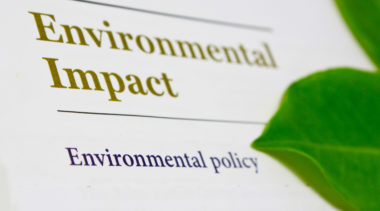Julian Morris is a senior fellow at Reason Foundation.
Morris is currently the director of innovation policy at the International Center for Law and Economics. He graduated from the University of Edinburgh with a master's degree in economics. Graduate studies at University College London, Cambridge University and the University of Westminster resulted in two further master's degrees and a Graduate Diploma in Law (equivalent to the academic component of a JD).
Morris is the author of dozens of scholarly articles on issues ranging from the morality of free trade to the regulation of the Internet, although his academic research has focused primarily on the relationship between institutions, economic development and environmental protection. He has also edited several books and co-edited the Electronic Journal of Sustainable Development.
Before joining Reason, Morris was executive director of International Policy Network, a London-based think tank which he co-founded. Before that, he ran the environment and technology programme at the Institute of Economic Affairs, also in London. Morris has also been a visiting professor in the Department of International Studies at the University of Buckingham (UK).
-
COVID-19 Lockdown Problems and Alternative Strategies to Safely Reopening the Economy
Part one of a series discussing strategies for combating and recovering from the coronavirus pandemic. More data-driven approaches based on test and trace are desirable.
-
Strategies for Combating and Recovering From the Coronavirus Pandemic
We identified approaches addressed in a series of policy briefs that, if taken together, form a coherent and effective strategy to combat the coronavirus pandemic.
-
Cities and States Need to Better Share Testing, Tracing, and Coronavirus Risk Information With Public
Sharing more comprehensive information on testing and areas with positive tests would help make citizens confident they can safely resume activities while continuing to take appropriate actions to manage risks.
-
Working Paper: An Evidence-Based Approach to Fighting the Coronavirus Pandemic
"A realistic plan for unlocking society must be found. Urgently. This brief seeks to offer elements of what such a plan might look like, based on evidence from actions taken in many jurisdictions."
-
The Economic Consequences of Fuel Economy Standards
This is the fourth in a series of briefs explaining and evaluating Corporate Average Fuel Economy (CAFE) and zero-emissions vehicle (ZEV) standards.
-
Reason Foundation Comment: Update to the Regulations Implementing the Procedural Provisions of the National Environmental Policy Act. CEQ–2019–0003 (85 FR 1684)
The proposed reforms will likely help streamline the NEPA process and result in fewer preliminary injunctions being issued by courts.
-
Does Legalizing Marijuana Reduce Crime?
In states that have legalized marijuana for either medical or recreational use, any adverse effects of such increased demand are more than offset by reductions in crime associated with legalization.
-
How Burdensome Regulation Obstructs Hunger Relief
This brief offers recommendations to help solve hunger by reforming current regulatory regimes that block the diffusion of beneficial technologies.
-
The Gateway Effect of Marijuana
Given the weak evidence for a causal relationship between youth marijuana use and subsequent use of other drugs, policymakers should not be overly concerned about the brain chemistry gateway effect.









